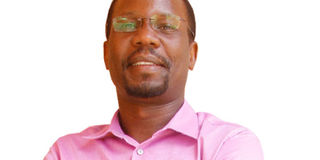If the bishop won’t talk politics, there’s no chance for you and me

If you are an archbishop, bishop, mufti or any religious leader of note with an opinion, a voice and a pulpit, soon you will have to answer the question: to talk or not to talk politics? And if you won’t talk politics, what kind of civic citizen would that make you?
The noise from last year’s speed-dialled constitutional amendment to create a life-presidency for Mr Yoweri Museveni continues to be heard in 2018; with critical religious leaders the target of attacks by ruling party hacks.
Incidentally, the top religious leaders — (Archbishop Stanley Ntagali, Mufti Shaban Ramadhan Mubajje, Metropolitan Jonah Lwanga, Archbishop Cyprian Kizito Lwanga, Archbishop Daniel Matte, Dr Joseph Serwadda, and Bishop Joshua Lwere), unlike a few junior ones under the Justice and Peace Network — did not oppose amendment of the Constitution to allow President Museveni run when he is passed the age of 75, which was the upper age limit at the time.
Their point was primarily on approach. They favoured a referendum instead of the chosen reckless method of a private member’s Bill, however legal. For their very mild views, the President’s acolytes have labelled them partisan. The point being that Mr Museveni wanted to have the Constitution changed without debate, or if there were to be any, everyone had to agree with him. It is called having a non-debate.
The barbaric way Opposition politicians were treated is good testament. Not even the well of Parliament was sacred enough.
While we have not yet got to a place where bad things happen to a key religious leader like happened with Archbishop Janani Luwum in 1977, it is clear we could easily tip over. As is already obvious, nothing is sacred in Uganda today when top power is challenged.
The statement that must have ticked off President Museveni, I guess, is contained in one of the documents the top religious leaders issued last year.
“As religious leaders,” the men of God wrote, according to The Observer, “we strongly believe that as a nation, we can build posterity and attain prosperity, if we build a nation on a culture of respecting the Constitution. Great leaders are distinguished from transactional leaders by the way they respect fundamental rules that govern society.”
That last sentence is huge. These men (no women religious leaders apparently) referred to our great transformative President as a transactional leader, and not in a nice way.
Supported by his attack squad, President Museveni returned fire in his New Year speech. He essentially characterised the clerics as confused sheep.
“Some of our religious people are so full of arrogance,” he said. “They talk most authoritatively on all and everything even when they have not bothered to find out the truth. This is assuming they do not have evil intentions which would be worse. That would make them into the Kayaffas, the Chief Priest, that betrayed Jesus.”
Who is Jesus in this context — again? And what are the possible “evil intentions” the clergymen could be harbouring?
He continued: “What is clear is that some of these elements have left undone what they ought to have done and did what they ought not to have done and there is no truth in them.”
Whose truth?
In all this Mr Museveni is seeking to control what Ugandans can say, even think. To not support his every venture is to be lost, to have no truth (however you understand truth). Yet you would think someone who practices real democracy, as opposed to pseudo-democracy, would be happy to entertain a back and forth between the leaders and the led.
Religious leaders are a key target of attack because they have deep reach within Uganda’s very religious population. You let them mouth off freely, and who knows, a life-presidency dream could turn into a nightmare.
Once religious leaders are neutered, it becomes very easy to cow the rest of us. So far the clerics are refusing bow down before a man and his political machine. If they hold their nerve, we are in for some ride toward the next election in 2021, or maybe 2023.
Bernard Tabaire is a media trainer and commentator on public affairs based in Kampala.
[email protected]
Twitter:@btabaire




